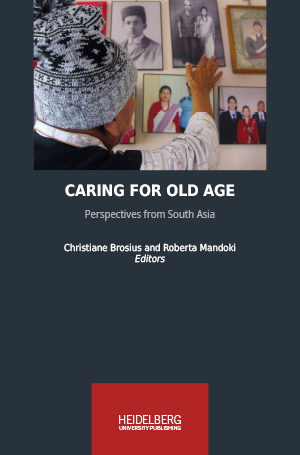Zitationsvorschlag
Lizenz (Kapitel)

Dieses Werk steht unter der Lizenz Creative Commons Namensnennung - Weitergabe unter gleichen Bedingungen 4.0 International.
Identifier (Buch)
Veröffentlicht
Migrant Emplacement: Gendered Subjects, State Regulations, and the Discursive Erasure of Elders in Sri Lanka
Abstract Discriminatory assumptions about family structure and care work underlie a 2013 Sri Lankan state regulation, referred to as the “Family Background Report” (FBR), which restricts the transnational labor migration of women with children under the age of five. Since the early 1980s, women from Sri Lanka have worked as domestic servants in Saudi Arabia, Kuwait, and the United Arab Emirates. A culture of migration has developed, and labourers’ remittances sustain family financial strategies. The FBR regulations narrow people’s employment options and destabilize long-standing practices of intergenerational reciprocity. Using ethnographic data gathered in 2015, the chapter considers the potential and actual consequences of these rules for migrants and care-giving grandmothers.
The focus on women’s “emplacement” provides a crucial counterpoint to current theoretical discussion in the migration literature on issues of “deportability.” Scholars have convincingly argued that uncertainty around a migrant labourer’s right to stay in the host country constitutes a form of structural violence and creates a docile, productive workforce. Compared to the adverse effects migrants experience under threat of deportation (inability to stay in the host country), FBR restrictions (inability to leave the country of origin) creates converse but equally oppressive situations of social suffering and precarity for migrants and their families. The research contributes to discussions in political anthropology about interactions between the family and the state.
Keywords migration, gender, aging, South Asia, Sri Lanka






